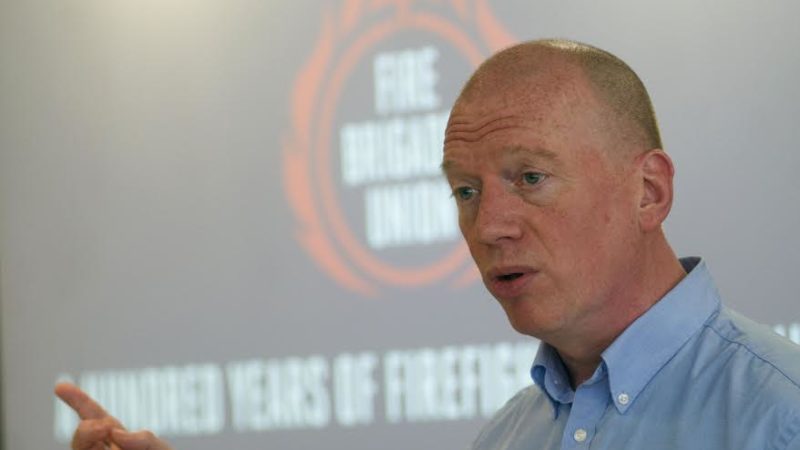
We saw people across the country join a minute’s silence on Tuesday to commemorate the workers who have died during the coronavirus pandemic. It was a moment that highlighted who is on the frontline of this crisis: workers in the health service, in social care, but also in the fire and rescue service, local government, education, those picking and processing our food, delivery drivers and transport workers and those working in our shops and supermarkets. These are the people confronting and tackling coronavirus head-on.
The minute’s silence at 11am was acknowledged by the media and by politicians. What seemed to be lost, however, is what 28th April actually is, and what it really means. That day is long established as International Workers’ Memorial Day, which is an annual international trade union event. From Poland to the Dominican Republic and Australia to Bangladesh, trade unionists stop to not just remember those who have been lost whilst doing their jobs, but to resolve to improve safety at work for those in the future.
I wouldn’t expect Conservative politicians to know, or even remember this. They spend plenty of their time watering down protections in the workplace and preaching at the altar of deregulation. But I was disappointed to see that the Labour Party did not make the true message of the day clear. The party founded by the trade unions should have remembered that it is a trade union day.
Trade unions like mine have been battling for workers’ safety since time immemorial, and it is an issue that has been brought into sharp focus by this crisis. The staggering lack of personal protective equipment in the NHS and in social care, of preparation and planning by employers and government, and the slow pace of introducing a fit for purpose national testing regime, is all evidence that the safety and lives of key workers has been put at risk. There must be a reckoning for those who have failed workers so badly in due course.
The battle for health and safety at work is a long-standing fight for workers, a fight by trade unions every day, in millions of workplaces across the globe. And where workers’ rights are weakened and trade unions are attacked, workers’ safety suffers, along with other conditions.
My industry is the fire and rescue service, where safety is a key and central issue for us in everything we do. Here, too, we have had 100 years of having to fight to improve the safety of firefighters. This means demanding adequate resources, training, equipment, PPE, and safe working procedures. In all these areas, it’s never straightforward; all too often it becomes a battle over resources. Can employers afford the best equipment and PPE? Are there sufficient resources to keep staffing at safe levels?
Our experience in the FBU is that when workers die, we face another battle. It is a battle for justice for the deceased, and for the bereaved and the families left behind. We lead those battles for our members in inquests and inquiries and in the fight for pension rights and for compensation.
These things are often not easy. We’ve seen cases in the fire and rescue service where employers or Chief Fire Officers pay tribute to those who have died, but then spend years fighting against paying out compensation. This is the reality on the frontline of work, and the reality of the battle for safety in workplaces.
As we reflect on Workers’ Memorial Day 2020, particularly in the face of this huge pandemic, we need to remember that the battle for safety at work continues – and it’s a battle that unions fight every day. And whilst this year’s Memorial Day has rightly focused on Covid-19, we must also remember all workers who die as a result of their labour.
At the end of this crisis, there can be no going back to normal. ‘Normal’ for unions in Britain has been decades of anti-worker attacks, laws that shackle us and undermine our individual and collective rights, including our rights on health and safety.
In the past decade, we’ve also seen a wider attack on health and safety, from Tory ministers talking about the unnecessary ‘burden’ of ‘red tape’. As trade unionists, we know that so called ‘red tape’ is often the difference between life and death in the workplace.
So let’s not see Workers’ Memorial Day turned into some tame government-sponsored expression of condolence, diluted of its true meaning. The slogan of Workers’ Memorial Day can guide us: remember the dead, fight for the living.




More from LabourList
‘Labour must confront the crisis of first past the post before it’s too late’
Unite to debate affiliation with Labour Party at conference next year
Miliband tops LabourList Cabinet league table, with gender divide in PM approval